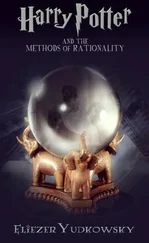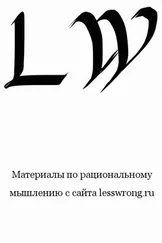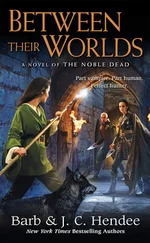Элиезер Юдковски - Three Worlds Collide
Здесь есть возможность читать онлайн «Элиезер Юдковски - Three Worlds Collide» весь текст электронной книги совершенно бесплатно (целиком полную версию без сокращений). В некоторых случаях можно слушать аудио, скачать через торрент в формате fb2 и присутствует краткое содержание. Жанр: Фантастика и фэнтези, на английском языке. Описание произведения, (предисловие) а так же отзывы посетителей доступны на портале библиотеки ЛибКат.
- Название:Three Worlds Collide
- Автор:
- Жанр:
- Год:неизвестен
- ISBN:нет данных
- Рейтинг книги:4 / 5. Голосов: 1
-
Избранное:Добавить в избранное
- Отзывы:
-
Ваша оценка:
- 80
- 1
- 2
- 3
- 4
- 5
Three Worlds Collide: краткое содержание, описание и аннотация
Предлагаем к чтению аннотацию, описание, краткое содержание или предисловие (зависит от того, что написал сам автор книги «Three Worlds Collide»). Если вы не нашли необходимую информацию о книге — напишите в комментариях, мы постараемся отыскать её.
Three Worlds Collide — читать онлайн бесплатно полную книгу (весь текст) целиком
Ниже представлен текст книги, разбитый по страницам. Система сохранения места последней прочитанной страницы, позволяет с удобством читать онлайн бесплатно книгу «Three Worlds Collide», без необходимости каждый раз заново искать на чём Вы остановились. Поставьте закладку, и сможете в любой момент перейти на страницу, на которой закончили чтение.
Интервал:
Закладка:
"Stop that laughing," Akon said absentmindedly, "it's distracting." The Conference Chair pinched the bridge of his nose. "All right. That doesn't seem completely random. The first line... is them identifying their ship, maybe. Then the second line says that we haven't opened fire on them, or that they won't open fire on us - something like that. The third line, I have absolutely no idea. The fourth...
is offering some kind of reciprocal trade -" Akon stopped then. So did the laughter.
"Would you like to send a return message?" said the Lord Programmer.
Everyone looked at him. Then everyone looked at Akon.
Akon thought about that very carefully. Total silence for a lengthy period of time might not be
construed as friendly by a race that had just talked at them for petabytes.
"All right," Akon said. He cleared his throat. "We are still trying to understand your language. We do not understand well. We are trying to translate. We may not translate correctly. These words may not say what we want them to say. Please do not be offended. This is the research vessel named quote Impossible Possible World unquote. We are pleased to meet you. We will assemble data for transmission to you, but do not have it ready." Akon paused. "Send them that. If you can make your program translate it three different plausible ways, do that too - it may make it clearer that we're working from an automatic program."
The Lord Programmer twitched a few more times, then spoke to the Lady Sensory. "Ready."
"Are you really sure this is a good idea?" said Sensory doubtfully.
Akon sighed. "No. Send the message."
For twenty seconds after, there was silence. Then new words appeared on the display:
WE ARE GLAD TO SEE YOU CANNOT BE DONE
YOU SPEAK LIKE BABY CRUNCH CRUNCH
WITH BIG ANGELIC POWERS
WE WISH TO SUBSCRIBE TO YOUR NEWSLETTER
"All right," Akon said, after a while. It seemed, on the whole, a positive response. "I expect a lot of people are eager to look at the alien corpus. But I also need volunteers to hunt for texts and holo files in our own Archive. Which don't betray the engineering principles behind any technology we've had for less than, say," Akon thought about the mirror shielding and what it implied, "a hundred years. Just showing that it can be done... we won't try to avoid that, but don't give away the science..."
A day later, the atmosphere at the Command Conference was considerably more tense.
Bewilderment. Horror. Fear. Numbness. Refusal. And in the distant background, slowly simmering, a dangerous edge of rising righteous fury.
"First of all," Akon said. "First of all. Does anyone have any plausible hypothesis, any reasonable interpretation of what we know, under which the aliens do not eat their own children?"
"There is always the possibility of misunderstanding," said the former Lady Psychologist, who was now, suddenly and abruptly, the lead Xenopsychologist of the ship, and therefore of humankind. "But unless the entire corpus they sent us is a fiction... no."
The alien holos showed tall crystalline insectile creatures, all flat planes and intersecting angles and prismatic refractions, propelling themselves over a field of sharp rocks: the aliens moved like hopping on pogo sticks, bouncing off the ground using projecting limbs that sank into their bodies and then rebounded. There was a cold beauty to the aliens' crystal bodies and their twisting rotating motions, like screensavers taking on sentient form.
And the aliens bounded over the sharp rocks toward tiny fleeing figures like delicate spherical
snowflakes, and grabbed them with pincers, and put them in their mouths. It was a central theme in holo after holo.
The alien brain was much smaller and denser than a human's. The alien children, though their bodies were tiny, had full-sized brains. They could talk. They protested as they were eaten, in the flickering internal lights that the aliens used to communicate. They screamed as they vanished into the adult aliens' maws.
Babies, then, had been a mistranslation: Preteens would have been more accurate.
Still, everyone was calling the aliens Babyeaters.
The children were sentient at the age they were consumed. The text portions of the corpus were very clear about that. It was part of the great, the noble, the most holy sacrifice. And the children were loved: this was part of the central truth of life, that parents could overcome their love and engage in the terrible winnowing. A parent might spawn a hundred children, and only one in a hundred could
survive - for otherwise they would die later, of starvation...
When the Babyeaters had come into their power as a technological species, they could have chosen to modify themselves - to prevent all births but one.
But this they did not choose to do.
For that terrible winnowing was the central truth of life, after all.
The one now called Xenopsychologist had arrived to the Huygens system with the first colonization
vessel. Since then she had spent over one hundred years practicing the profession of psychology,
earning the rare title of Lady. (Most people got fed up and switched careers after no more than fifty, whatever their first intentions.) Now, after all that time, she was simply the Xenopsychologist, no longer a Lady of her profession. Being the first and only Xenopsychologist made no difference; the hundred-year rule for true expertise was not a rule that anyone could suspend. If she was the foremost Xenopsychologist of humankind, then also she was the least, the most foolish and the most ignorant.
She was only an apprentice Xenopsychologist, no matter that there were no masters anywhere. In
theory, her social status should have been too low to be seated at the Conference Table. In theory.
The Xenopsychologist was two hundred and fifty years old. She looked much older, now, as as she
spoke. "In terms of evolutionary psychology... I think I understand what happened. The ancestors of the Babyeaters were a species that gave birth to hundreds of offspring in a spawning season, like
Terrestrial fish; what we call r -strategy reproduction. But the ancestral Babyeaters discovered...
crystal-tending, a kind of agriculture... long before humans did. They were around as smart as
chimpanzees, when they started farming. The adults federated into tribes so they could guard
territories and tend crystal. They adapted to pen up their offspring, to keep them around in herds so they could feed them. But they couldn't produce enough crystal for all the children.
"It's a truism in evolutionary biology that group selection can't work among non-relatives. The exception is if there are enforcement mechanisms, punishment for defectors - then there's no individual advantage to cheating, because you get slapped down. That's what happened with the Babyeaters.
They didn't restrain their individual reproduction because the more children they put in the tribal pen, the more children of theirs were likely to survive. But the total production of offspring from the tribal pen was greater, if the children were winnowed down, and the survivors got more individual resources and attention afterward. That was how their species began to shift toward a k -strategy, an individual survival strategy. That was the beginning of their culture.
"And anyone who tried to cheat, to hide away a child, or even go easier on their own children during the winnowing - well, the Babyeaters treated the merciful parents the same way that human tribes treat their traitors.
"They developed psychological adaptations for enforcing that, their first great group norm. And those psychological adaptations, those emotions, were reused over the course of their evolution, as the
Читать дальшеИнтервал:
Закладка:
Похожие книги на «Three Worlds Collide»
Представляем Вашему вниманию похожие книги на «Three Worlds Collide» списком для выбора. Мы отобрали схожую по названию и смыслу литературу в надежде предоставить читателям больше вариантов отыскать новые, интересные, ещё непрочитанные произведения.
Обсуждение, отзывы о книге «Three Worlds Collide» и просто собственные мнения читателей. Оставьте ваши комментарии, напишите, что Вы думаете о произведении, его смысле или главных героях. Укажите что конкретно понравилось, а что нет, и почему Вы так считаете.





